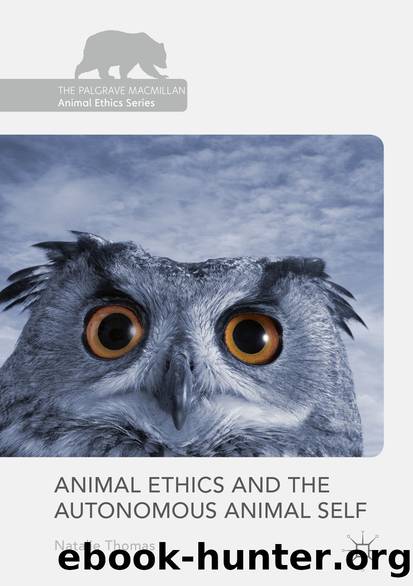Animal Ethics and the Autonomous Animal Self by Natalie Thomas

Author:Natalie Thomas
Language: eng
Format: epub
Publisher: Palgrave Macmillan UK, London
Aiming for Consistency
When it comes to making ethical judgments, our broad aim is for consistency. That is, we generally believe that to be fair or just, our ethical judgments should not be based on arbitrary prejudice or emotional reactions. Instead, they should be based on rational principles or moral concepts that apply to individuals, groups, and across contexts and different situations. For humans, we typically believe that we owe others moral obligations by virtue of certain qualities they possess, such as autonomy and agency. If people possess these qualities, then we owe them moral obligations, and we do this to varying degrees depending on the complexity of the qualities as they are found in different individuals. This is why the nature and extent of our moral obligations towards others vary, as in the differences between what we owe (morally) towards other adults or towards children, or towards those who are intellectually disabled, and so on. What we agree on is the importance and value of respecting the autonomy of others, when and where we find it.
In my view, autonomy exists when an individual is understood to be an agent who acts on the basis of their own beliefs, desires, and preferences, and who is also self-aware. As many animals share these qualities with humans, as I have argued above, then we also owe them moral obligations in the form of respecting their autonomy. In this way, we are acting consistently, in terms of our moral behaviour. If we deny that we have direct moral obligations towards animals, despite the evidence that they possess agency, self-awareness (even minimally), and autonomy, just as humans do, to a greater or lesser extent, then we are simply acting inconsistently and irrationally. Sometimes this is the result of acting based on our desires and emotions. So, while moral theories based on care and compassion should not be discounted, it is important to supplement them with rational principles or guidelines, even abstract ones, to achieve greater consistency, and thereby greater justice, in our relationships with other animals. Respecting the autonomy of other individuals, both human and animal, requires both a rational recognition and an acknowledgement of the value of freedom in others, as well as the emotional motivation to act on it in caring and compassionate ways. In this way, using autonomy as the ground for moral obligations towards animals ensures a consistency in our treatment of them, regardless of whether or not we have personal relationships with those animals. For example, animals that are remote from us, such as wild or agricultural animals, will still be recognized as worthy of direct moral obligations on the ground of autonomy, even if we do not feel an emotional connection to them, like we might towards our own companion animals.
Download
This site does not store any files on its server. We only index and link to content provided by other sites. Please contact the content providers to delete copyright contents if any and email us, we'll remove relevant links or contents immediately.
The remains of the day by Kazuo Ishiguro(7576)
Tools of Titans by Timothy Ferriss(6965)
The Black Swan by Nassim Nicholas Taleb(6204)
Inner Engineering: A Yogi's Guide to Joy by Sadhguru(5910)
Giovanni's Room by James Baldwin(5896)
The Way of Zen by Alan W. Watts(5809)
The Six Wives Of Henry VIII (WOMEN IN HISTORY) by Fraser Antonia(4799)
The Power of Now: A Guide to Spiritual Enlightenment by Eckhart Tolle(4767)
Astrophysics for People in a Hurry by Neil DeGrasse Tyson(4627)
Asking the Right Questions: A Guide to Critical Thinking by M. Neil Browne & Stuart M. Keeley(4599)
12 Rules for Life by Jordan B. Peterson(3745)
The Ethical Slut by Janet W. Hardy(3511)
Skin in the Game by Nassim Nicholas Taleb(3479)
Housekeeping by Marilynne Robinson(3420)
The Art of Happiness by The Dalai Lama(3391)
Double Down (Diary of a Wimpy Kid Book 11) by Jeff Kinney(3285)
Skin in the Game: Hidden Asymmetries in Daily Life by Nassim Nicholas Taleb(3273)
Walking by Henry David Thoreau(3237)
12 Rules for Life: An Antidote to Chaos by Jordan B. Peterson(3209)
